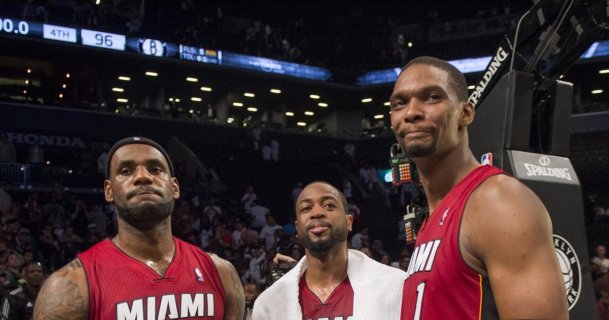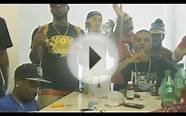
What is luxury tax in NBA?
Definition:The National Basketball Association caps player salaries at a certain level, which is based on a percentage of projected league revenue (see basketball related income). But it is a "soft" cap - there are a wide variety of mechanisms that teams can use to go over, most notably the Larry Bird exception, which allows teams to exceed the cap when re-signing their own free agents. Teams can spend above the cap without penalty - up to a certain point.
But once a team's payroll hits the luxury tax threshold, the franchise faces additional charges.
Luxury Tax and the 2005 Collective Bargaining Agreement
Under the collective bargaining agreement that took effect starting with the 2005-06 season, the luxury tax threshold was set at 61 percent of basketball related income, and the tax charge was one dollar for every dollar of payroll above the threshold. If the tax threshold was set at $65 million and a given team's payroll was $75 million, that team would be charged $10 million.For the 2010-11 season, the salary cap was just over $58 million and the tax threshold was set at $70.3 million. Seven teams exceeded that number and paid the tax; the Orlando Magic were charged $20.1 million, while the Lakers and world-champion Dallas Mavericks had tax bills of $19.9 and $18.9 million, respectively.
Where Does that Money Go?
Every team under the luxury tax threshold gets an equal share of luxury taxes collected for a given season. That creates a double incentive for teams not to exceed the tax number: have a payroll over the tax threshold, and you're hit with that charge... but you also miss out on the payment.How the Tax Impacts Personnel Decisions
The current tax has never been much of an impediment to the league's wealthiest teams. The Mavericks have been tax payers every year since 2005-06. The Lakers have beeen payers since 2008. The 2011 season was the first time that the Knicks weren't hit with a tax bill, but that was more about Donnie Walsh's attempt to get under the salary cap to make a run at LeBron James than luxury tax avoidance.But less-wealthy teams have made quite a few moves driven by the luxury tax. Take, for example, Utah's trade of Eric Maynor to the Oklahoma City Thunder. Utah's payroll for the 2009-10 season was higher than anticipated because Carlos Boozer didn't opt out of a contract as expected and because they chose to match Portland's contact offer to restricted free agent Paul Millsap. So the Jazz sent Maynor - a very promising rookie point guard, with Matt Harpring - a highly-paid veteran with serious injury problems, for the draft rights to 2002 second-round draft pick Peter Fehse.
Several low-payroll teams - most notably the Thunder - have done quite well in such trades, picking up valuable assets like Maynor or draft picks while helping other teams avoid onerous cap charges.
The Super Tax Cometh
The next NBA collective bargaining agreement is expected to include a more punitive luxury tax. Details have not yet been finalized, but under one of the owners' proposals, the threshold would be set at $5 million above the cap. The charge would start at $1.75 for every dollar over and increase from there. Under that system, the Lakers would have been hit with a cap charge of over $50 million.Of course, a team like the Lakers - with their $30 billion local television contract can absorb that additional cost without putting much of a dent in the bottom line. The league wants to prevent teams from making the tax an annual thing. As such, recent proposals have included several different penalties for teams that exceed the tax threshold regularly, ranging from additional charges to the loss of cap exceptions.
The players union has strongly resisted those additional penalties for fear that they would prevent big spending teams from spending... which is, of course... the point.
You might also like




|
samsung galaxy s4 Strong Protect High Grade fashion mobile phone case oakland athletics mlb baseball Wireless (Everley Carl Nash)
|







